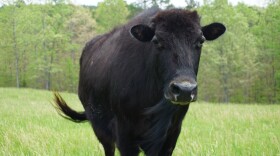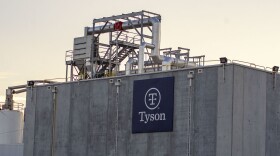-
A study finds people who eat more than one serving of red meat a day are at higher risk of developing Type 2 diabetes. Processed meats, like bacon and hot dogs, were linked to an even higher risk.
-
A research team from multiple universities is developing technology that can detect salmonella contamination in a matter of minutes. They aim to take the results from sensors and pair them with other data to strengthen the safety and resilience of the supply of chicken.
-
The U.S. Department of Agriculture gave two companies the green light last month to produce and sell their cultivated chicken meat across the country. But it could still take years before people can buy the new meat at grocery stores.
-
The U.S. Department of Agriculture proposed a new rule that would change the requirements of meat, poultry and egg labels that say “Product of USA” or “Made in the USA” to better align with what consumers understand the claim to mean.
-
Hosting a July 4th barbeque is 11 percent more expensive than last year, thanks to inflation. The prices of chicken wings, ground beef and beer have all skyrocketed. Still, there are ways to save.
-
The crossbreed gained some attention in the 1970s. Supporters today say there is big potential to provide better, healthier meat by combining the best qualities of the two animals, in just the right amount.
-
Immigrants make up an estimated 40 percent of the U.S. meat processing workforce. Last year’s wave of COVID outbreaks at meatpacking plants exposed many vulnerabilities among the industry’s diverse workforce.
-
Along with $1 billion in American Rescue Plan money to help small processors expand, the U.S. Department of Agriculture is revising regulations intended to protect against monopoly behavior. And it's setting up an online portal to field complaints.
-
The coronavirus swept through the nation’s meat processing facilities in 2020. Nearly two years into the pandemic, many are still searching for answers — and calling for change.
-
Even as tax dollars increasingly subsidize small meat processors, they struggle to make a profit while bearing the expenses of getting rid of the byproducts.
Play Live Radio
Next Up:
0:00
0:00
Available On Air Stations










